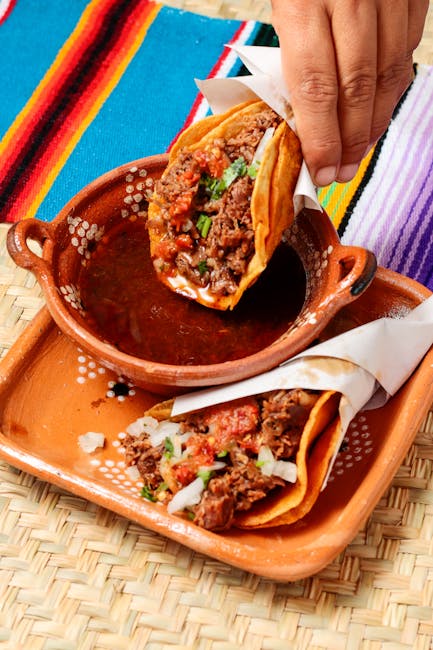Do You Want a Taco Meme? A Deep Dive into the Hilarious World of Taco Internet Culture
The internet is a vast and wondrous place, a digital tapestry woven with threads of humor, absurdity, and, of course, memes. And within this vibrant online ecosystem, a particular culinary delight has earned its place as a recurring star: the taco. The humble taco, a simple yet satisfying dish, has transcended its gastronomic origins to become a prolific memetic force, spawning countless variations and interpretations that continue to tickle our funny bones.
The Origins of the Taco Meme: A Humble Beginning
Pinpointing the precise origin of the “Do you want a taco?” meme is challenging, as internet trends often emerge organically from multiple sources. However, its widespread popularity can be attributed to its simplicity and relatability. The question itself is innocuous, even endearing, acting as a perfect springboard for humorous responses and visual interpretations. The meme often features images of various tacos, ranging from the perfectly crafted to the hilariously disastrous, further fueling its comedic potential.
The meme’s versatility is a key factor in its success. It can be adapted to suit a wide range of situations and contexts. It can be used to express excitement (“Do you want a taco? Yes, I do!”), to offer comfort (“Do you want a taco? You deserve a taco.”), or to subtly mock someone (“Do you want a taco? No, you don’t want that kind of taco…”). This adaptability has allowed the meme to remain relevant and engaging for years.
Variations and Interpretations: A Tacotopia of Memes
The “Do you want a taco?” meme has spawned numerous variations, each with its own unique comedic flair. Some variations focus on the visual aspect, presenting images of tacos that are either aesthetically pleasing or comically absurd. These images range from perfectly constructed, gourmet tacos to wildly unconventional creations that defy culinary norms.
Other variations incorporate text-based humor, playing with the ambiguity of the question itself. For instance, the meme might show a picture of a single, lonely taco, with the question acting as a sarcastic commentary on the meager offering. Or it might feature an overflowing plate of tacos, implying an overwhelming, yet delightful, abundance.
The Unexpected Taco: Subverting Expectations
The meme’s power lies partly in its ability to subvert expectations. The simple question, “Do you want a taco?” is so straightforward that it creates a comedic effect when presented in unusual or unexpected contexts. For example, an image of a taco alongside a completely unrelated object, like a cat or a spaceship, can create an amusing juxtaposition. This unexpected pairing adds an element of surprise and absurdity, enhancing the overall comedic impact of the meme.
The Taco as a Symbol: More Than Just a Dish
Beyond its immediate comedic appeal, the “Do you want a taco?” meme can also be viewed as a symbol of comfort, indulgence, and simple pleasures. Tacos often represent a sense of familiarity and nostalgia, prompting feelings of warmth and happiness. The meme capitalizes on this association, transforming the taco into an icon of joy and contentment.
The Meme’s Impact on Internet Culture
The “Do you want a taco?” meme is a testament to the power of simplicity and relatability in internet culture. Its enduring popularity underscores the significant role that food plays in our collective online experience. The meme’s widespread use across various social media platforms demonstrates its ability to transcend geographical boundaries and cultural differences, uniting people under the banner of shared culinary appreciation (and comedic enjoyment).
Spreading the Taco Love: Social Media and Beyond
The meme’s prevalence on platforms like Twitter, Instagram, Facebook, and Reddit exemplifies its adaptability to different online environments. Its easy shareability and versatility ensure its continued relevance and proliferation across the digital landscape. Furthermore, the meme’s visual nature makes it particularly well-suited to image-based platforms, enhancing its reach and impact.
The Future of the Taco Meme: An Ever-Evolving Trend
The “Do you want a taco?” meme, like all successful internet trends, is constantly evolving. New variations are continuously emerging, pushing the creative boundaries of the original concept. This adaptability ensures that the meme will continue to find new audiences and resonate with internet users for years to come.
The meme’s longevity is a testament to its inherent comedic value and its capacity to be adapted to current events and trends. As long as tacos remain a beloved food item and humor continues to be a driving force on the internet, the “Do you want a taco?” meme will likely persist, evolving and adapting to the ever-changing landscape of online culture.
Beyond the Meme: The Real-World Impact of Taco Culture
The popularity of the “Do you want a taco?” meme reflects the broader cultural significance of tacos. Tacos have become a globally recognized culinary phenomenon, transcending geographical and cultural boundaries. Their popularity is a reflection of their deliciousness, affordability, and versatility.
The meme’s success also highlights the power of food-based memes in general. Food is a universally relatable topic, connecting people through shared experiences and emotions. This relatability makes food-based memes particularly effective in generating engagement and fostering a sense of community among internet users.
Conclusion: A Tasty Slice of Internet History
The “Do you want a taco?” meme is more than just a fleeting internet trend; it’s a cultural phenomenon that speaks to our shared love of food, humor, and the simple pleasures in life. Its enduring popularity underscores the power of relatable content and the enduring appeal of the humble taco. So, next time you’re scrolling through your favorite social media platform and you encounter this iconic meme, take a moment to appreciate its lasting impact on the internet’s comedic landscape.
The meme’s ability to transcend borders and unite people in laughter is a testament to its enduring appeal and its place in the ever-evolving world of internet culture. It’s a delicious slice of internet history, a reminder that even the simplest things can become sources of widespread joy and connection.

